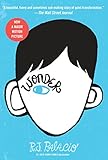Swedish Study Indicates Baby Fish Prefer Plastic Over Regular Food
Language
Reading Level
Listen to Article

The fact that the increasingly large amounts of plastic debris in our oceans is ending up inside the stomachs of marine animals is well-known. However, experts had assumed it was because the creatures mistook the colorful floating debris for food. Now, a team of researchers led by Oona Lönnstedt, a marine biologist at Sweden’s Uppsala University has found that some baby fish may actually be choosing to eat plastic over regular food!
The study focused on examining the impact of tiny particles of plastic on the drastically declining population of the European perch. The microscopic polymer, primarily a result of the disintegration of larger plastic debris, enters the ocean as waste from waterways and settles along the coast. Lönnstedt and her co-author Peter Eklöv wanted to investigate if there was a link between the deaths of the large numbers of juvenile perch in the Baltic Sea and the plastic pollutants.

The scientists began by placing some perch eggs in three test tanks. The control tank contained only free-swimming plankton, the regular food of the baby fish. In the other two test tanks, the researchers added both the plankton and varying amounts of microscopic polystyrene beads.
The researchers found that just the presence of the plastic reduced hatching rates by 15%. Even worse, when Lönnsted examined the larvae through a microscope, she discovered that the baby fish in the two test tanks preferred to eat the plastic even though there was an abundant supply of plankton. The researcher believes that the fish are fooled into thinking that the plastic is a high-energy resource that they need to eat a lot of. She says it is like “unhealthy fast food for teenagers, and they (the fish) are just stuffing themselves.”

Not surprisingly, this did not bode well for the marine animals. Though the control fish (the ones that only ate plankton) grew as expected, the ones that had consumed plastic experienced stunted growth. Peter Eklöv, one of the study's authors, says that the reason for the delayed growth is the inability of the perch to digest the plastic in their system. "It gets stuck in their digestive tract and blocks it," he explains. "Now the fish can't digest anything, even plankton. Eventually, the young fish can starve to death."
In addition to hindering their development, the plastic also seems to alter the fish’s natural instincts. In a second experiment, the researchers added a chemical that smells similar to pike, a known predator of the baby perch, to the fish tanks. Under normal circumstances, the perch quickly pick up the distinct scent and freeze so as not to attract attention to themselves. While the fish that had grown in the control tank did exactly that, the ones that had consumed plastic continued swimming around, unaware of the danger.

The researchers then took the experiment one step further by introducing specimens of pike fish to each of the tanks. Forty-eight hours later, they found that while more than half of the baby fish in the plastic-free tank had managed to fool the pike, only a third in the tank with a lower concentration of the polymer were still swimming. Sadly enough, none of the baby perch inside the tank with the highest level of the beads managed to survive.
Lönnsted and Eklöv next plan to conduct similar research of the European perch in their natural habitat and also investigate the impact of other plastic contaminants. Lönnsted says, “Now we know that polystyrene is harmful, but we also need to compare it to the other common polymers such as polyethylene and PVC.” According to the researcher, “If we can target the chemical that is most harmful, at least this could hopefully be phased out of production.” Though this will not eradicate the problem, it will go a long way in helping marine animals survive the dire effects of human pollution.
Resources: Smithsonianmag.org, csmontor.com,scienceforstudents.com
Cite Article
Learn Keywords in this Article
245 Comments
- unknown_user14over 3 yearsI've heard of Plastic Shrimp on CNN10 (b/c we keep throwing trash in the waters) but a fish that WANTS to EAT plastic, that's like touching... something you don't want to EVER touch!
- gold3nglarealmost 4 yearsWow. This is terrible. Poeple need to be more mindful
- RandomPerson#77over 6 yearsvery cool atical so very interecting!!
- lucyalmost 8 yearsthats sad
- lucyalmost 8 yearsthats sad people are hurting small fish
- $$$almost 8 yearswhat i love fish will i be eating plastic
- parkeritoalmost 8 yearsbut i like sushi i dont want to eat plastic
- falmost 8 yearsoh my gosh why
- ???????almost 8 yearsI will never eat fish again.
- i dont likefishabout 8 yearsi dont like fish




